‘Thousands of women’ may be eligible for BHP, Rio Tinto sexual harassment class actions
When Angela Green was called into a meeting in August 2023, she was “shocked” by what happened. And she’s not alone.

Mining
Don't miss out on the headlines from Mining. Followed categories will be added to My News.
When a BHP worker discovered she was a likely victim of a colleague who had secretly filmed female staff in their rooms, she assumed that was what a meeting with her employer would be about.
But instead, Angela Green was grilled about “who I’m having sex with”.
“I was so shocked,” the 36-year-old said in a statement.
“They were accusing me of giving out sexual favours to rort the company via the employee awards system, which was a joke because the prizes were things like a thank you card or a $10 Bunnings voucher.
“I wasn’t sleeping with anyone on site, I was at the mine to work and my record vouches for that. Nothing was adding up.”
Ms Green, who was sacked in April, alleges that she faced retaliation and attempted silencing by BHP for speaking up about the colleague who she claims filmed her.
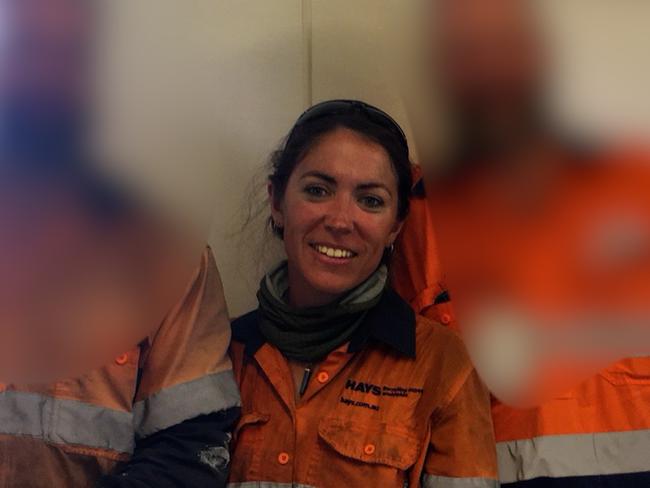
She is one of “hundreds if not thousands” of current and former female employees of mining giants BHP and Rio Tinto who may be eligible to sign up for class action lawsuits filed in federal court today alleging widespread, systemic sexual harassment and gender discrimination at two of the country’s biggest mining companies, said JGA Saddler class action lawyer Joshua Aylward.
“Women have been urinated on, forced into compromising positions and in some cases (raped), there have been women who have been physically assaulted, women who have been fired or demoted purely because they stood up to what has been happening to them and reported it,” Mr Aylward claimed.
“Every type of sexual harassment and assault you can think of, I’ve spoken to a woman who has suffered that. One woman who used to be an adult dancer said she had seen more penises in the mining industry.”
The law firm, backed by global litigation funder Omni Bridgeway, is inviting BHP and Rio Tinto workers who may be fearful of bringing an individual case to join the class actions anonymously.
“They fear the might (of these companies), they fear sticking their heads up and suffering retaliation,” said Mr Aylward.
“They see other women who have stuck their head up and suffered demotions and discrimination.”
Under the Anti-Discrimination Act, an employer is liable if they “permit” a woman to work in an environment where they will likely be exposed to sexual harassment and discrimination.
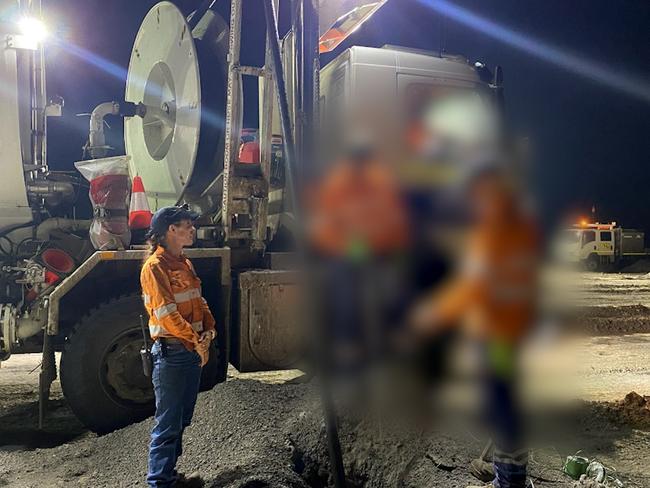
Women who were subject to harassment or discrimination while working at one or more of Rio Tinto or BHP’s Australian workplaces, any time from November 2003, are eligible. Rio Tinto and BHP will be legally required to contact all female staff with details on how to join.
The class actions come weeks after an independent review into Rio Tinto’s workplace culture found unacceptable behaviour including sexual assault, bullying and racism still persisted at the company, two years on from a probe by Sex Discrimination Commissioner Elizabeth Broderick.
Rio Tinto last month said it was “greatly troubled” by the findings and apologised to anyone “still experiencing behaviours and attitudes in our company that are unacceptable and harmful”.
Last financial year, BHP said it had received 417 reports of sexual harassment with more than 100 employees sacked after investigations.
“These behaviours are unacceptable and we are working to eliminate them at BHP by increasing awareness and promote reporting, response and investigations in relation to these matters,” the company said in announcing the latest statistics.
Mr Aylward said despite knowing of the issues for years, companies like BHP and Rio Tinto were still not doing enough to keep female employees safe.
“I put it down to one thing — profits over people,” he said.
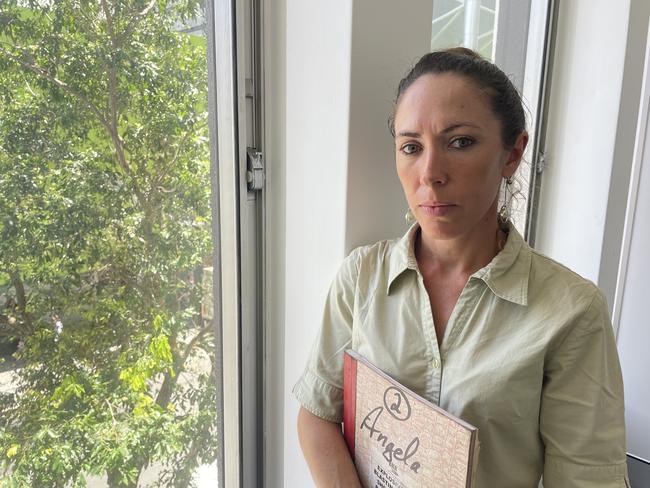
“These companies pay lip service to helping women on site, but the proof is in the pudding. They have a goal to employ more females but the turnover rate of women is so much higher than men. I would say no woman should go and work for these companies until they sort out these issues.”
According to Ms Green, the August 9 meeting at BHP came after she had confronted her employer.
She had heard of an incident involving the other employee who was allegedly caught filming female staff, accessing and downloading phone contents, stealing underwear and hair samples and even used tampons from the bin.
Ms Green, a blast crew shotfirer with the mining giant, said she was told by another woman who had seen the video “that she believed I had been filmed too, and some of my underwear had gone missing”.
After being questioned about her sex life she complained to someone else within the company, but alleges she was told there was “no harm done” and a promotion was “dangled in front of me”.
Earlier this year she was accused of falsifying a log book, which she denies, and later sacked after she filed an ethics complaint with BHP following the meeting where she claimed she was asked about her sex life.
“I work with explosives which requires an ASIO clearance, I have an immaculate work record, I’ve never had an issue or even a written warning,” she said.
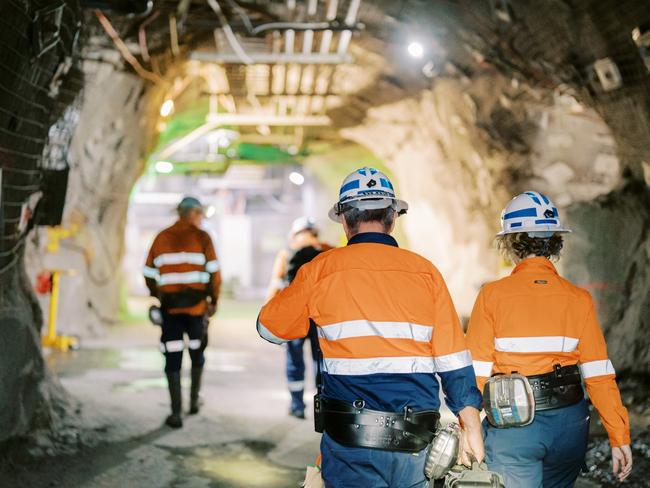
Ms Green alleges that the month after she was sacked, BHP offered her compensation for the way she was dismissed and asked her to sign a confidentiality agreement — on the promise that her record would be cleared to say she had resigned.
“I know that there are lots of people in this situation,” she said.
“You’ve just lost your job, you’ve got no income but you have a chance to clear your name so you’re forced or compelled to take the little bit they offer, shut up and go away. If you don’t accept you get black-listed and you’ll never get another job in mining.”
Mr Aylward claimed this type of retaliation was widespread across industry.
“For anyone in the company to say they did not know these types of (complaints) are being dealt with in these inappropriate ways would be naive. These companies have done their own reports, they know what is going on at the ground level,” he said.
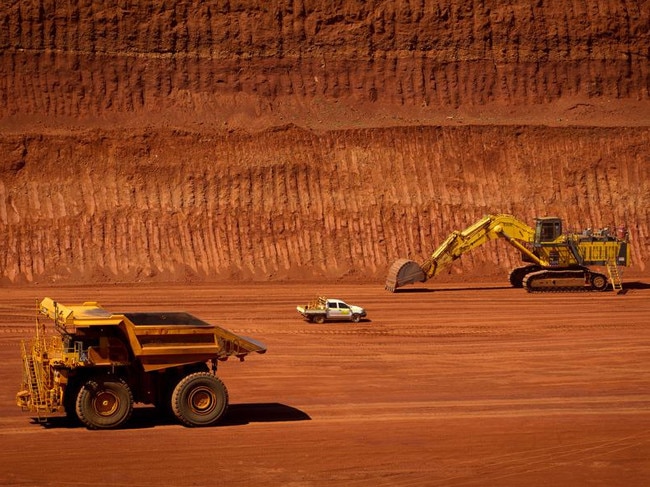
The Rio Tinto lead applicant worked as a FIFO security officer at a range of WA sites.
She alleges she was subjected to frequent sexual harassment, ranging from inappropriate comments such as “I need you to come back to my room” and “you can arrest me anytime” to physical groping. The woman reported instances of male colleagues touching or “rubbing up against” her as they passed by her, including touching her backside, breasts or pressing their genitals against her.
On one occasion she alleges a man in a Rio Tinto-branded shirt exposed his genitals to her and said something to the effect of, “Oh look, he’s sad, give him a bit of love.”
She also reported witnessing numerous offensive jokes and comments including about rape, and alleges she suffered pregnancy discrimination.
“I was sent unsolicited sexually explicit messages, videos and pictures from a colleague including pictures and videos of him masturbating in his on-site room,” she said. “Rio Tinto allowed him to resign but after my complaint I was overlooked for opportunities to upskill.”
The BHP lead applicant worked as a drive-in drive-out (DIDO) truck operator in Queensland and NSW.
She alleges she was subjected to escalating “pranks” being played by male staff members on her and her donga, such as turning off her gas and electricity, putting toothpaste on her door and disabling the battery of her car. She alleges she was urinated on, sexually harassed over the two-way radio and had a BHP employee defecate in front of her.
On one occasion she alleges she was verbally abused by a male service cart operator who punched the glass of a bus window close to where she was resting her head, calling her a “c**t” and “p***k tease” and accusing her of “being here just to get laid”.
“There have been times I haven’t reported an incident for fear of what might happen to my career, my job and my personal safety,” she said.
“There has been no transparency or accountability for these companies which has contributed to unsafe workplaces for women. I don’t want anyone else to be subjected to the sexual harassment, threats and disgusting behaviours I have seen and experienced on BHP mine sites.”
Rio Tinto said it was aware that a claim had been filed in federal court today.
“We treat all such claims with the utmost seriousness,” a spokeswoman said.
“We do not tolerate any form of sexual harassment or sex-based harassment. We take all concerns about workplace safety, culture and breaches of our values, or our Code of Conduct extremely seriously. This extends to our entire network, including business partners, contractors, and suppliers. We are absolutely committed to creating safe, respectful, and inclusive workplaces. We encourage employees, contractors, and the public to report any harmful or disrespectful behaviour through MyVoice, our independent and confidential reporting system.”
A BHP spokeswoman said sexual harassment “has no place in our workplaces or indeed anywhere”.
“We are committed to providing a safe and respectful workplace for everyone,” she said.
“We deeply regret and apologise unreservedly to anyone who has ever experienced any form of harassment at BHP. For many years, we have been focused on identifying, calling out and dealing with instances of disrespectful behaviour, including sexual harassment, racism and bullying.”
She noted that in 2018, BHP defined sexual harassment as a health and safety risk “to be treated with the same focus and oversight as other workplace health and safety risks”.
“We have a wide range of controls in place focused on prevention, reporting and response,” she said.
“We’ve rolled out respectful behaviour training, improved our investigation resourcing and approach, and invested $US500 million to improve the safety and security of accommodation villages in Australia. This includes increased security guard coverage, upgrades to village lighting and CCTV, and enhancements to room security.”
Originally published as ‘Thousands of women’ may be eligible for BHP, Rio Tinto sexual harassment class actions





